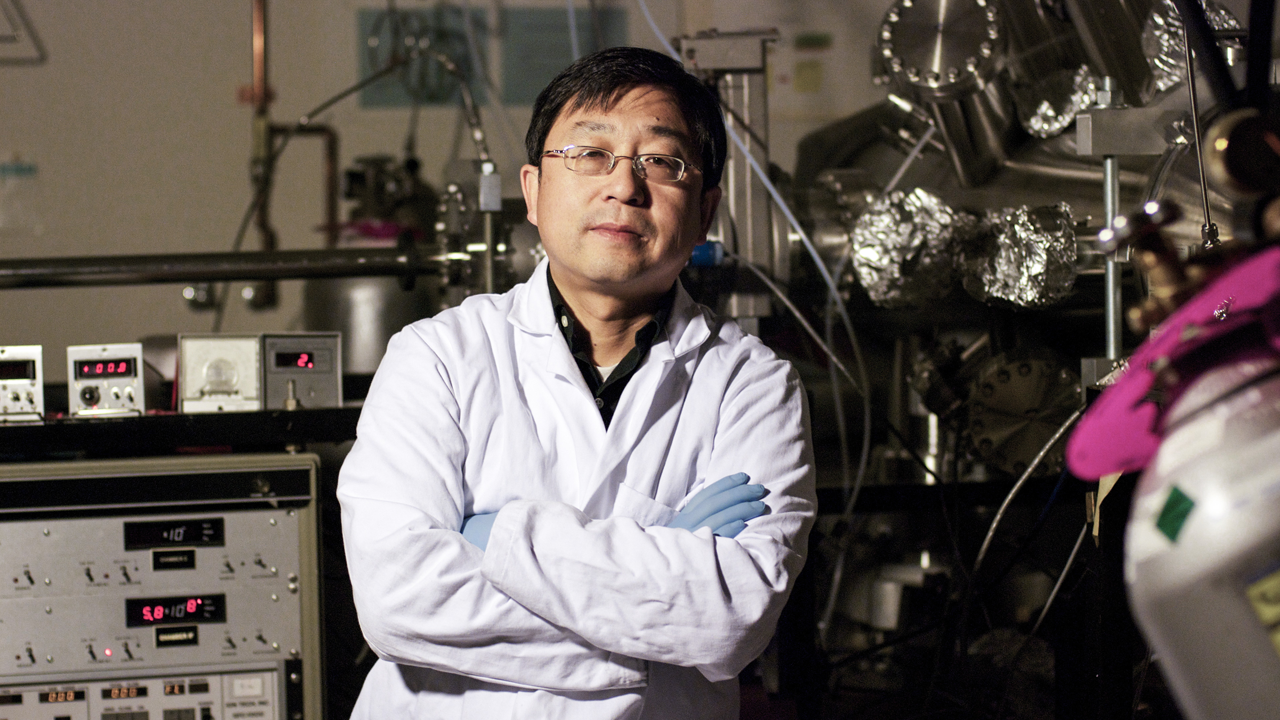
Any patient who has waited days for a blood test to come back knows it can be a nerve-wracking experience. Imagine if you had a device the size of a graphing calculator that could give you accurate results in 15 minutes?
Through University of Minnesota’s Jian-Ping Wang's work, this technology is closer to becoming a reality. The electrical and computer engineering professor in the U’s College of Science and Engineering invented a biosensing device that quickly and accurately measures even a tiny quantity of a disease or health condition in a human sample. In March, the U helped form a startup company called Zepto Life Technology, where Wang now works as chairman of the scientific advisory board to make his invention portable, inexpensive and available across the world.
“It could fundamentally change the way people are taking care of themselves,” Wang said. “An individual’s health can be monitored in a comprehensive, personalized way. Diseases can be detected much sooner, leading to better health outcomes and ultimately, longer, healthier lives.”
Chief among Wang’s research interests is spintronics, the practice of using the “spin” of an electron and its magnetic moment rather than its charge. He applied his expertise in this field to make an ultra-sensitive biochip with 64 sensors, each of which uses magnetic nanoparticles to “pull” in and detect even small traces of a specific disease or condition.
While Wang has formed a benchtop model of the biosensing device, the portable version has so much potential that the U’s Office for Technology Commercialization, Institute for Engineering in Medicine and Masonic Cancer Center as well as the National Science Foundation and the U.S. Department of Defense funded development. The user inserts the biochip, which measures less than two centimeters on its longest side, into the device and then adds a urine or other body fluid sample. After a short wait, the test is done. For the first time, the device allows a patient to be screened for a wide array of different conditions, from malaria to cancer, all at once.
Despite the significant accomplishment this new technology represents, Wang is the first to note that many other talented people have contributed to this research. Over the past ten years, Wang has worked with a large, multi-disciplinary team of students and researchers, including the U’s Prof. Chengguo Xing, Medicinal Chemistry; Prof. Amy Skubitz, Laboratory Medicine and Pathology; and Prof. John Slaton, formerly of Urologic Surgery at the U, now at Ohio State.
“I feel fortunate to have had so many outstanding collaborators on this long time project and couldn’t name them all here,” said Wang. “It’s exciting to see all of our work now come to fruition.”
Zepto, based in St. Paul, plans to introduce its biosensing tools into the market by the end of 2015. Others on the company’s team are working on product design and optimization, but Wang is done with the most challenging and enjoyable part of his role: creating the technology in the lab. While he’s optimistic about his accomplishments, the real victory is yet to come.
“After Prof. Wang and his team’s tremendous long-time effort, I’m looking forward to seeing this in the market and used to help people, to benefit society,” said Yongyong Zhang, Zepto’s CEO and board chair. “That will be the point when everyone on Zepto’s team is happy.”
Wang has high aspirations for the difference this work will make in society. He pictures the portable devices not just beside hospital beds, but as a fixture in households. Families could test themselves regularly, with data from the device automatically transmitting to a doctor through a wireless connection. The doctor would then have enough information to understand a patient’s health not just as it is now, but as it has developed over time.
The device’s new level of sensitivity also means physicians can detect traces of growing health problems earlier and work to prevent them, instead of focusing on treating already-developed health problems. Wang hopes it will soon change the health care industry and lead to both healthier patients and much lower costs here in the U.S. It could also have significant benefits in geographically isolated areas or in countries where people lack access to good healthcare.
“Developing countries often don’t have the resources for preventive care,” Wang said. “There is a demand for new, more accessible technology.”
A mind for magnets
Disease early detection using spintronic devices is just one of Wang’s many interests. He has earned global attention for his research into Fe16N2, a potential powerful rare-earth-free magnet that could replace expensive and less environmentally friendly rare earth magnets in wind turbines, motors and generators. This technology was licensed in June to Niron Magnetics Inc., the most recent startup company from his lab. Previously, Wang developed the technology behind Universal Magnetic Systems, a startup company that develops intelligent and highly magnetic nanoparticles for life sciences applications. This technology also partly contributed to the concept behind Zepto’s biosensing device. Wang’s inventions have also been used in the development of hard disk drives. In total, Wang is responsible for 39 invention disclosures at the U of M and 28 patents that either have been issued, are pending or are being drafted for full application.
Wang and his inventions were recently featured in a National Journal article on the economic impact of innovation and entrepreneurship at the U of M.
Photo by Richard Anderson